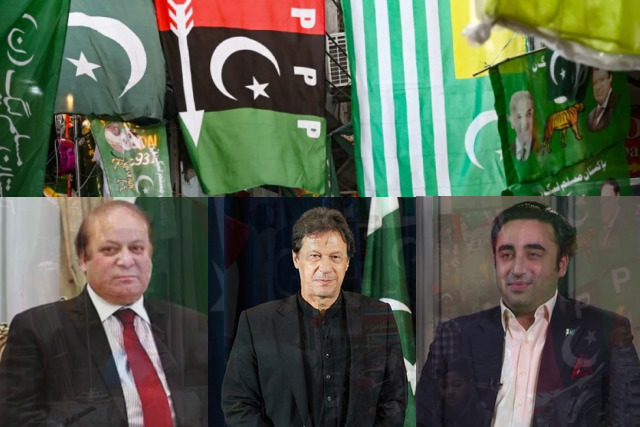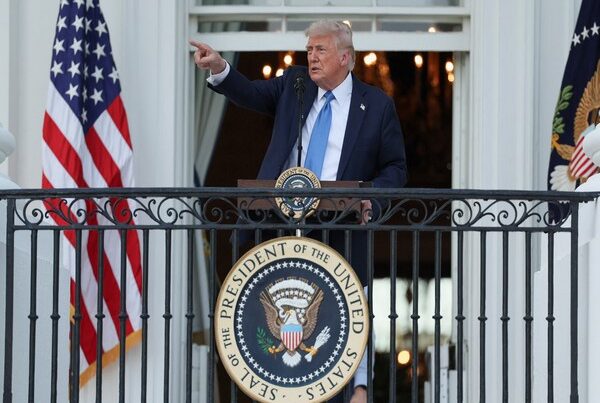
Making Sense of Pakistan’s Current Chaos
In Pakistan’s chequered history, a hundred Independents being elected to the National Assembly as happened last week, is not unprecedented. In 1970, in its first and the only free and fair election, Sheikh Mujibur Rahman’s Awami League won 160. The consequences are well known.
Nor, for that matter, is a confrontation between the army chief and the prime minister of the day. Z A Bhutto paid for his worst folly when General Zia ul Haq deposed and jailed him and had him hanged through a controversial court verdict.
One may not wish for dire consequences for the Pakistani people living in more complex times today. But relations between the jailed former Prime Minister Imran Khan and the current chief, General Asim Munir, whom he had targeted when in power, could hark back to the Bhutto-Zia era or that of Nawaz Sharif’s third prime ministership and General Pervez Musharraf.
In 1970-71, Pakistan’s military-civil ‘establishment’ then led by the army chief, General Yahya Khan, had calculated that Mujib would not score beyond 60 seats in the then East Pakistan. Perhaps, the Munir-led set-up also never imagined that the jailed cricketer-politician would score “a century without the bat”, the election symbol his party was denied.
All stakeholders underestimated Khan’s support, particularly among the middle class. The results show that the general voter, surviving the Corona-19 pandemic and floods, battered by rising prices of essential commodities and miserable living for long years, is disillusioned by the two dynasties who have ruled by turns – the Sharifs of the Pakistan Muslim League and the Pakistan Peoples’ Party (PPP) of the Bhutto-Zardaris. Of the two, Nawaz was perceived as the army’s favourite.
Whether Independents who do not constitute a party or a coalition of parties can, or will, be invited to form the new government is doubtful. As it did in 2018 with Imran as the mascot, the ‘establishment’ may facilitate the Sharif and Bhutto-Zardari families to forge a coalition with others. Even if formed within the constitutional norms, such a coalition would lack credibility, if not legitimacy, and ensure continuing political turmoil.
Chances are that Imran may reach a compromise with the military, his mentors-turned-foes. Besides his safety, freedom and political future, too much is at stake for him. Independents loyal to him can form coalition governments in Punjab and Khyber Pakhtunkhwa provinces. Denied power, they could be poached and purchased. Some have already joined Nawaz.
The military must either strike a compromise with Khan or prop up the rivals, for now at least and tackle protests by Khan’s supporters. Such a government would be unstable and perhaps short-lived, leaving the military to do more manipulations.
The election’s outcome is thus both clear and complicated: It is a vote against “electoral engineering”. But the complication is that the army-led elite will still call all the shots. Inherent to this surprise development is that Munir could face dissension from among the top military brass.
Being rebuffed by the general populace and failing in its effort to influence the results using the state institutions, the army is unlikely to stay inactive. Its role in the coming days and weeks is more difficult to predict than even the politicians jockeying for power.
The situation opens possibilities of a significant role for the country’s President Arif Alvi. He is a die-hard Khan loyalist – something he has not concealed while holding the highest constitutional office. He can be expected to play a key role in the coming days. It needs to be mentioned that his term ended last November but he continues in office because the college that elects the president – the National and the provincial assemblies – has been dissolved.
The people voted for Khan, despite his four years of bad governance. Khan had “cancelled out” all others. He defied and even maligned the army once he was pushed out of power through a vote of no-confidence in the National Assembly. The military is particularly angry with Khan as his supporters had attacked military installations to protest their leader’s arrest last August.
As of now, Khan is convicted and jailed for the next 24 years. Any about-turn by the establishment would, however, require the country’s judiciary to re-look at Khan’s multiple convictions –just as it did with the Sharifs only a few weeks back — and work to free him. That process could take weeks to gain fruition. Now, Khan and his close associates are being bailed out. The judiciary is known to comply with changing political trends.
Prominent among the losers were top leaders of the two largest Islamist parties, Maulana Fazlur Rahman of Jamiat Ulema Islami (JUI) and Sirajul Haq of the Jamaat-e-Islami. It is unclear if they lost out to the more militant group, Tehreek-e-Labbaik Pakistan (TLP), which put up more candidates than the mainstream parties. The Islamists are generally pro-establishment and carry more influence socially than electoral clout.
At the international level, Khan’s victory spells defiance of the United States. Anti-American sentiment is easy to stoke in Pakistan. But this was the first election in which the US became a ‘factor’ in that Khan was convicted for leaking a cypher, an official communication from Pakistan’s then-ambassador in Washington to the Khan-led government. It contained a purported conversation between the envoy and Donald Lu, a senior American State Department official warning Khan of “dire consequences”. Khan publicly accused the US – which the Biden administration denied – of ousting him from office because of his ‘independent’ and “pro-China” policies.
How the Biden administration, preparing for the presidential election, will respond remains to be seen. It is still clueless about its policy in the Af-Pak region — Afghanistan from where the US evacuated in 2021 is inherent to the Pakistan policy. The US needs it to deal with the Taliban-ruled Afghanistan. Islamabad, besides its historic deep-seated military and strategic ties with the US, also needs Washington’s nod for the International Monetary Fund (IMF) loan that it desperately needs to be on the road to economic recovery.
The election results should also worry Pakistan’s “all-weather friend” China. It is concerned about the lack of adequate push for the multi-billion China-Pakistan Economic Corridor (CPEC), the ‘flagship’ of its Belt and Road Initiative across the globe that it seeks to extend to Afghanistan.
Pakistan’s political instability also concerns its other benefactors – Saudi Arabia and the UAE, besides Turkey — who have bailed it out during the economic crisis. This instability in a leading Islamic nation confirms the widespread, but debatable, notion that Islam and democracy do not always go together.
Pakistan needs better ‘coordination’ between Allah, the Army and America to rise out of its multifaceted crisis.
For more details visit us: https://lokmarg.com/



